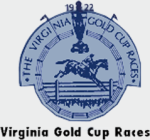Meet Gil Short, a key figure in the development, launch and early operation of Colonial Downs Racetrack in New Kent, who is back in the area building another equine facility — though this one isn’t geared to accommodate hundreds of horses and thousands of fans.
Short was responsible for Colonial’s planning and impressive design back in the mid 1990’s and he also managed construction of the $62 million project. Once complete — and final construction came down to the very last minute — he helped usher in Virginia’s inaugural season of thoroughbred racing in September, 1997, and harness racing the following spring.
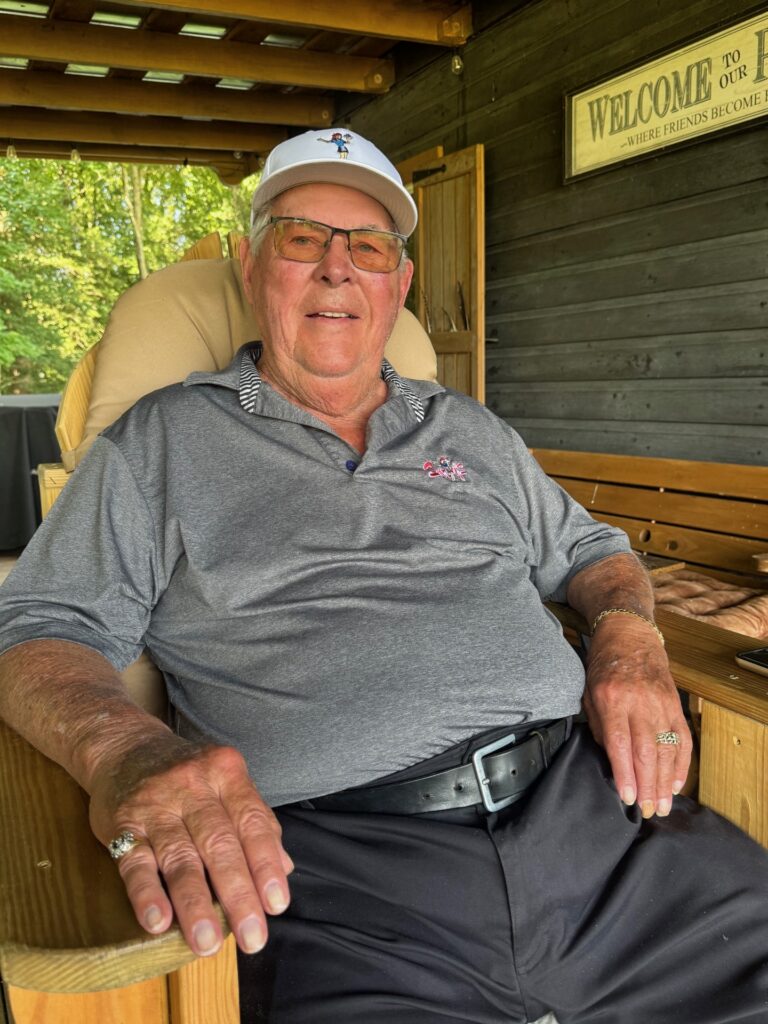
Fast forward to July, 2025 and Short is back in the area constructing another horse property that he owns, located less than 20 miles from Colonial Downs. This time around, he’s looking to play host to 25 or 30 horses instead of 900. Short is putting final touches on his Finish Line Farm in Toano and come this September, will be three years into the project. The 50-acre property is currently home to 11 young standardbreds participating in the Virginia Harness Horse Association’s (VHHA) Certified Residency program, several broodmares and two donkeys. “It’s going to be a showplace when it’s done,” he said.
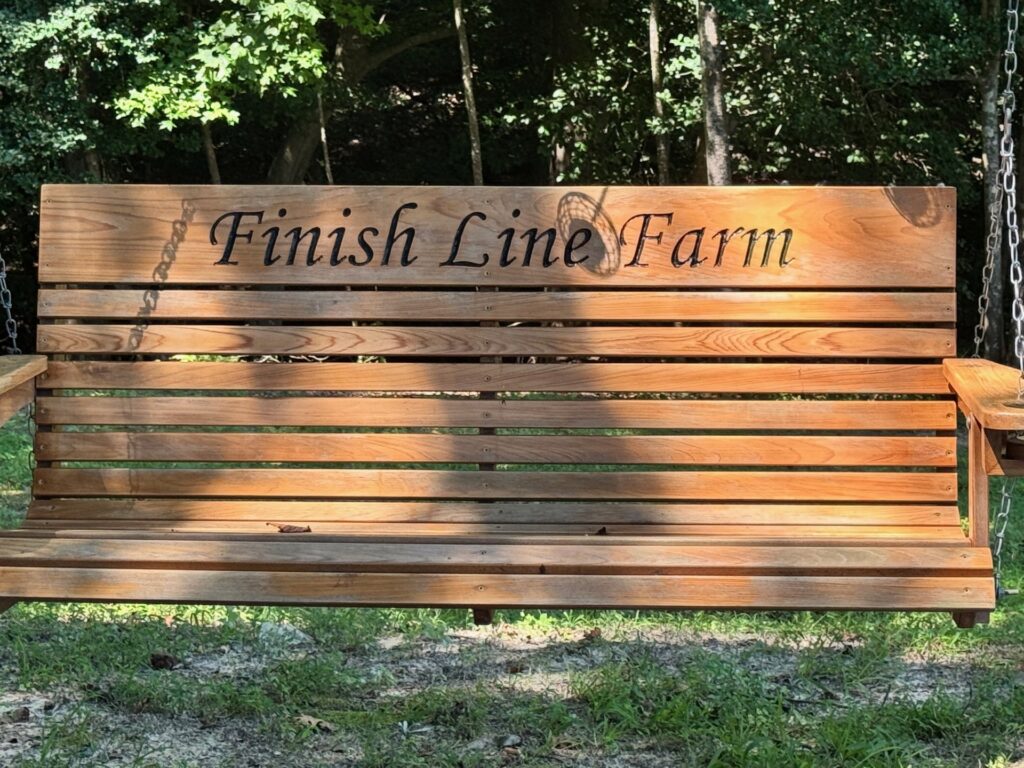
Short initially bought 25 acres but when some of the surrounding acreage didn’t sell, he bought another 25. The outside of the barn was completed three months ago and work on the inside is progressing now. Amenities include six stalls, a foaling shed, living quarters, an office, wash stall and two run-in sheds. The property itself features all Bermuda grass. His construction team installed 1-1/2 miles of fencing and every post hole was dug by hand. “It’s going to be a showplace when it’s done,” he said.
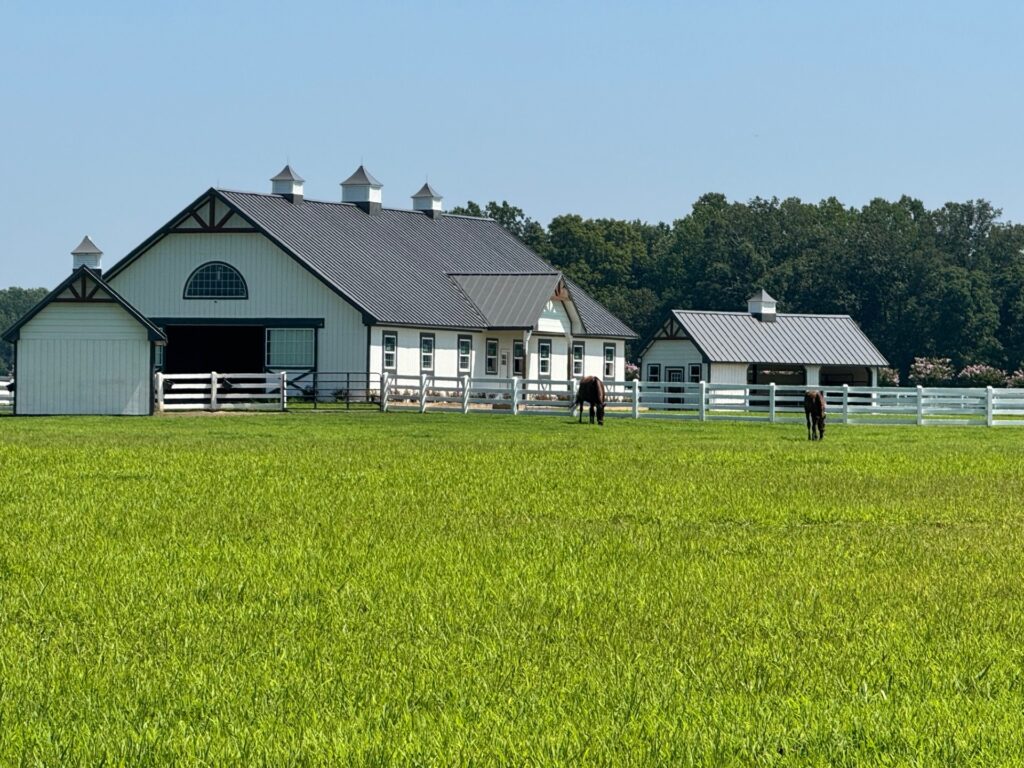
The farm’s current population of residency horses features a combination of babies and yearlings from the nationally prominent Burke Racing Stable, and Short’s. “Burke is a solid supporter of the Virginia Certified incentive program,” said Short. “It’s nice when you can follow horses that were raised on your property and see them go on and do well. I’ll probably get a little more aggressive advertising my farm for potential residencies.”
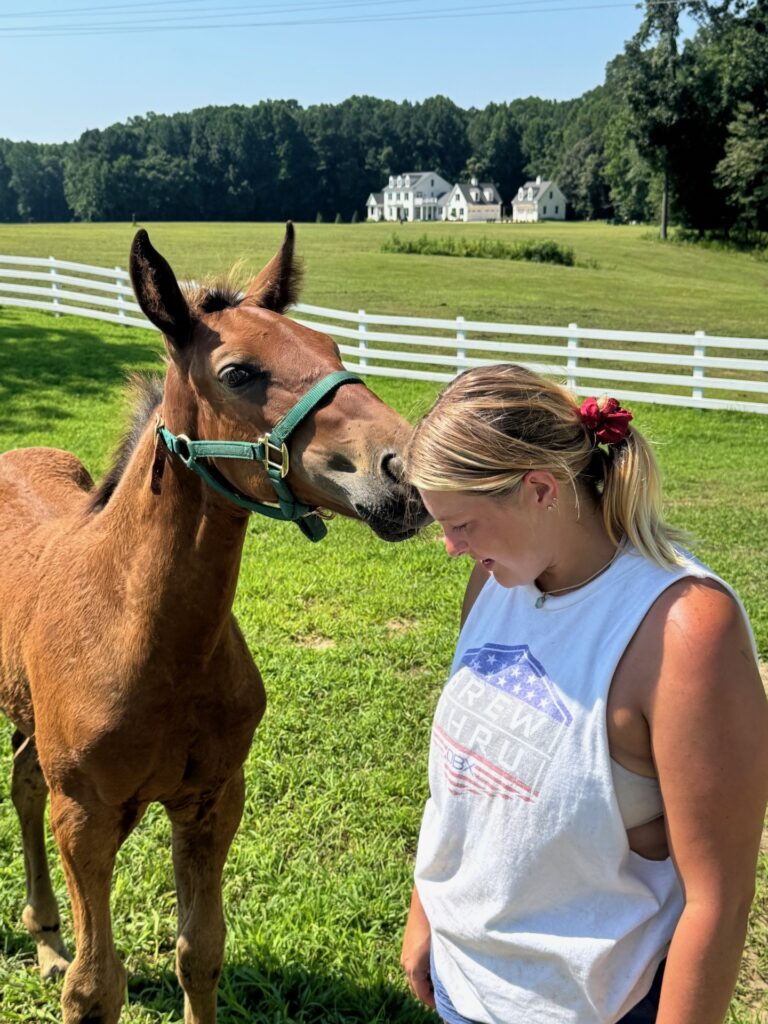
Short, now 79, refers to a cabin on the outskirts of the grounds as his “happy place”. He spends mornings there on the patio making phone calls, smoking cigars and most importantly, watching his horses. The cabin does not have electricity, but it does have water. It is adjacent to an 80-acre reservoir which provides welcome cooling in the summer and a convenient place to drop a kayak in. “I’ve spent a lot of good times at the cabin with the kids and grandkids since,” he said. “It’s a great, fun place.”
“We didn’t even know the cabin was here when I bought the property. It was an old slave quarters and there were trees all around it. This area was a Civil War battleground and is quite historic. We found lots of bullets, arrowheads and buttons during the digging and renovation process.”
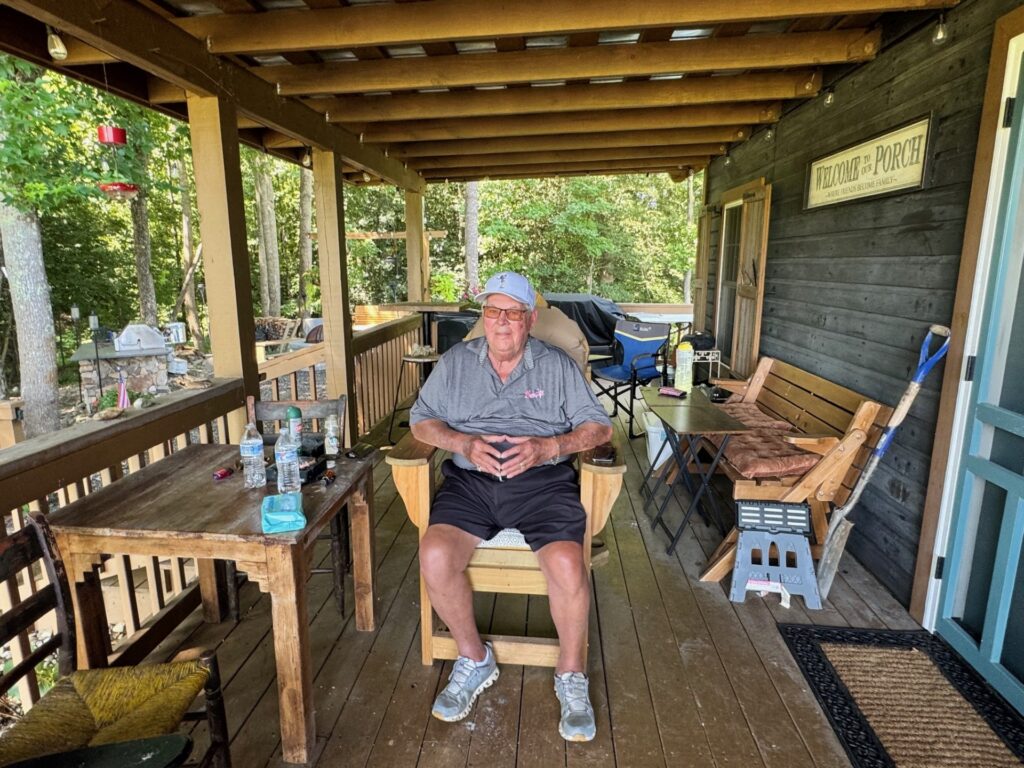
Short is still an active and very successful standardbred horse owner and has six horses currently competing. He has been best friends with Chuck Sylvester for 50 years and they still have a close relationship with horses they partner in. He has overseen construction of Indiana Downs, Trinity Downs and Spring Garden Ranch via his career as a track consultant. Back again in Virginia for round two, Short enjoys recalling those initial stages of Colonial Downs.
“When we applied for the track license back then, two of the biggest competitors were Churchill Downs, who had a proposed location in Virginia Beach, and the Maryland Jockey Club, who had a proposed site in Northern Virginia. Neither bid was determined to be acceptable and somehow or other, we ended up getting the license for the New Kent site. The Virginia Racing Commission said we had to be open in 13 months. We put $60 million in the ground and opened on the deadline day. How we accomplished that I’ll never know.”
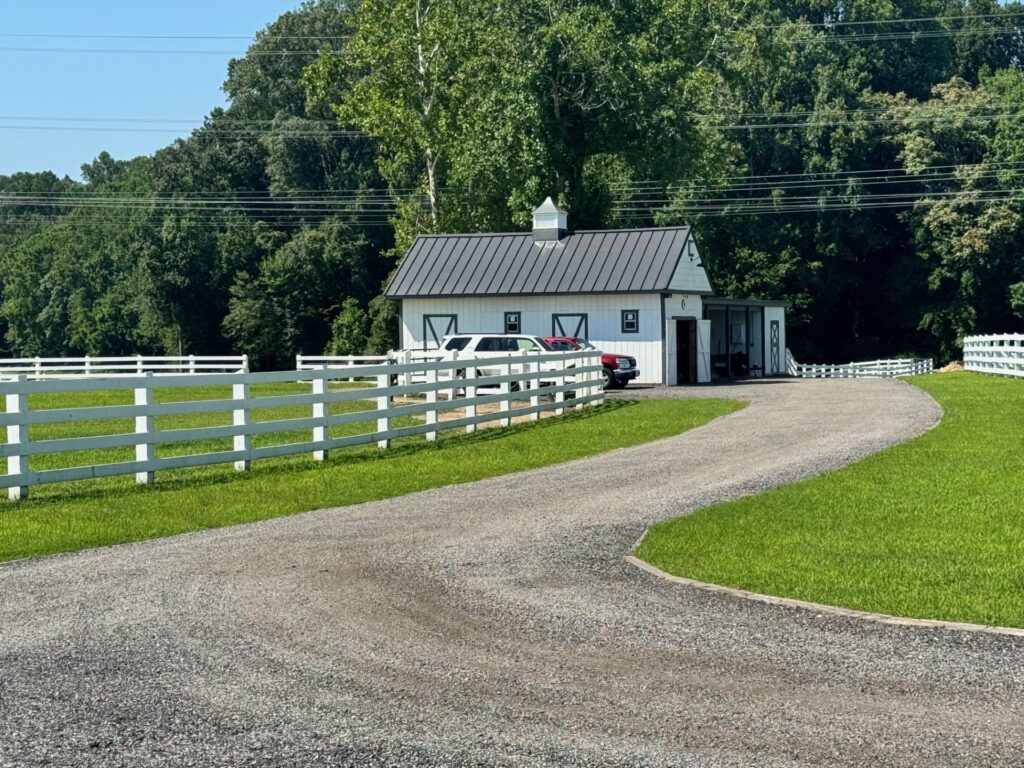
Many regard the track’s two surfaces as second to none. They include a 180-foot-wide turf course named after the Triple Crown winning Virginia-bred Secretariat, and a 1-1/4 miles dirt oval which serviced both breeds until 2014. The massive dirt track features a chute which created harness racing’s only one-turn mile configuration.
After several post-Colonial Downs projects, Short relocated to West Palm Beach, Florida. Three years later, and with great neighbors, he acknowledged he needed more open space. The houses were too close together. Short moved back to Virginia — to the Williamsburg area — and opened up a restaurant there named Shorty’s Diner. That was 15 years ago. He has since opened two more locations — one in Richmond, six years ago, and one in Yorktown earlier this year.
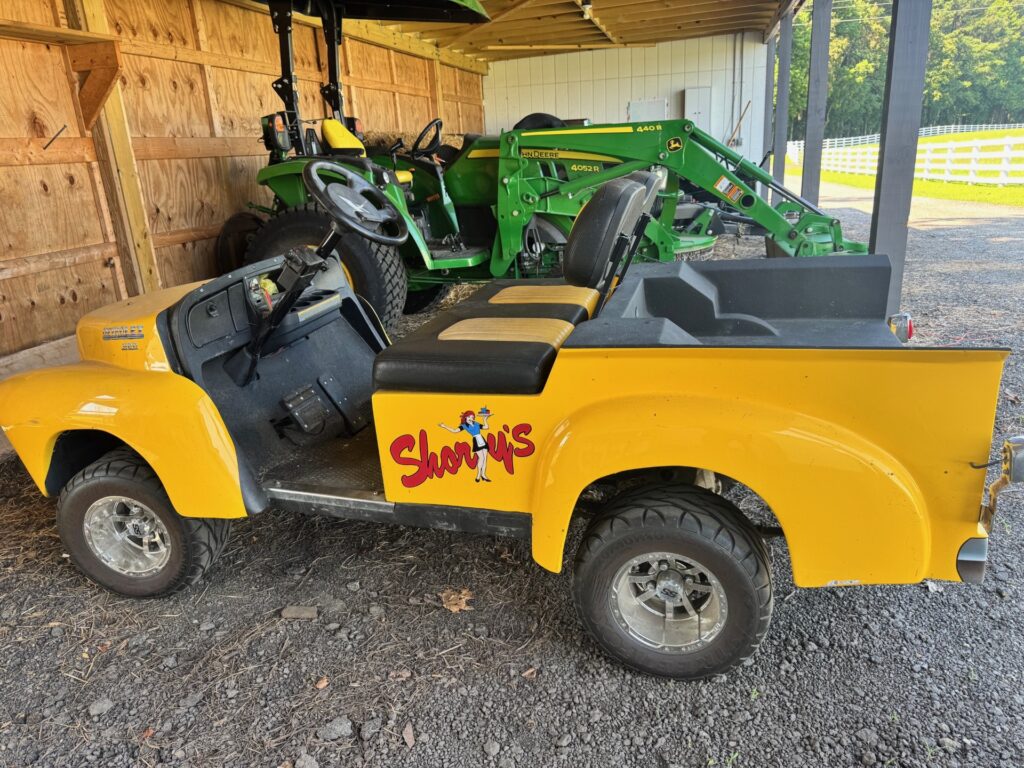
“They have been quite successful,” he said. “My son Tony runs them. After I leave the farm cabin each morning at 11 AM, I visit one of the three restaurants, go in and act like I’m working, walk in circles and meet people. It’s been fun. I stay busy. The walls of each are lined with pictures of horse acquaintances and horses I had that were successful. It’s amazing how many people you meet that are in the standardbred business, or used to be in the business, that come from all over.”
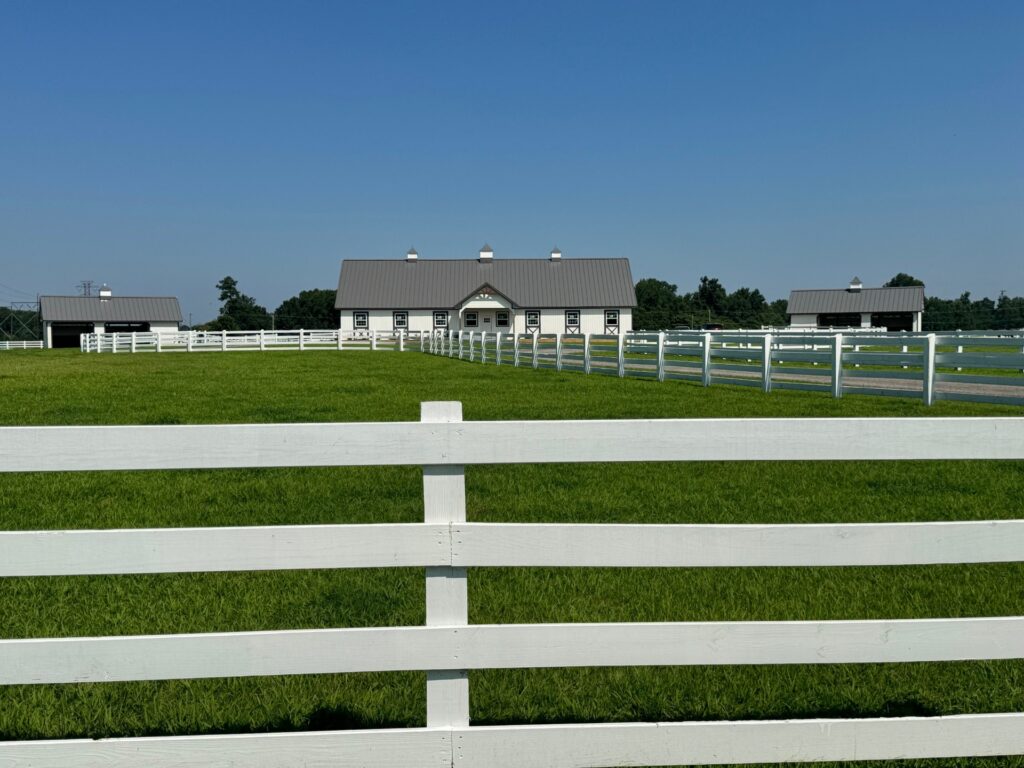
The Finish Line Farm is one of many thoroughbred and standardbred farms and training centers in Virginia that welcome horses registered in the respective Certified Residency programs. In order to participate in the initiative, thoroughbreds need to spend a minimum of six consecutive months at a location before they turn three years of age. Standardbreds must complete an identical term but need to do so before they turn two. Graduate horses then become eligible to receive bonus monies once they begin racing. Details on these programs can be found at vabred.org (thoroughbred) and vhha.net (harness).

